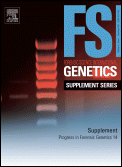
Forensic Science International Genetics Supplement Series
Scope & Guideline
Bridging the gap between genetics and forensic applications.
Introduction
Aims and Scopes
- Forensic DNA Analysis:
The journal focuses on the development and validation of methodologies for DNA extraction, profiling, and analysis from various biological samples, including those from crime scenes and historical remains. - Population Genetics and Ancestry:
Research on population-specific genetic markers, ancestry analysis, and genealogical investigations forms a substantial part of the journal's scope, contributing to the understanding of genetic diversity and its implications in forensic contexts. - Innovative Technologies in Forensics:
The incorporation of cutting-edge technologies such as next-generation sequencing (NGS), machine learning, and digital PCR in forensic applications is a key area of focus, reflecting the journal's commitment to enhancing forensic methodologies. - Ethical and Legal Considerations:
The journal addresses ethical standards and legal frameworks surrounding the use of genetic databases and forensic DNA evidence, emphasizing responsible practices in forensic genetics. - Case Studies and Practical Applications:
Emphasis on real-world applications of forensic genetic research through case studies, which illustrate the practical implications and effectiveness of various forensic methodologies.
Trending and Emerging
- Integration of Machine Learning:
There is an increasing trend towards utilizing machine learning techniques for predictive modeling in forensic genetics, particularly in biogeographical ancestry prediction, enhancing the accuracy and efficiency of genetic analyses. - Focus on Low-Template and Degraded DNA:
Research on the analysis of low-template and degraded DNA samples is gaining prominence, reflecting the need for methodologies that can effectively handle challenging forensic samples often encountered in casework. - Investigative Genetic Genealogy:
The application of genetic genealogy in solving cold cases and identifying unknown remains is emerging as a significant trend, highlighting the importance of integrating genealogical research with forensic DNA analysis. - Ethical Frameworks for DNA Databases:
As the use of DNA databases expands, there is a growing emphasis on establishing ethical guidelines and legal considerations surrounding their use, showcasing the journal's commitment to responsible forensic practices. - Microhaplotypes and SNP Analysis:
The exploration of microhaplotypes and single nucleotide polymorphisms (SNPs) for kinship analysis and ancestry determination is on the rise, indicating a shift towards more detailed and informative genetic markers in forensic investigations.
Declining or Waning
- Traditional STR Analysis:
While STR analysis remains important, there is a noticeable decrease in research focused solely on traditional STR markers as more sophisticated techniques, such as NGS and microhaplotypes, gain traction. - Basic DNA Extraction Techniques:
Research centered on basic DNA extraction methods has diminished as forensic science advances towards more specialized and efficient extraction techniques tailored for specific sample types. - Single-Sample Analysis:
The focus on individual sample analysis has waned in favor of more complex studies involving mixed samples and population-wide analyses, reflecting a trend towards understanding genetic relationships in broader contexts.
Similar Journals
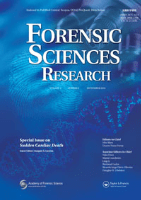
Forensic Sciences Research
Connecting Research and Real-World ForensicsForensic Sciences Research is a distinguished open-access journal published by Oxford University Press, dedicated to the interdisciplinary field of forensic sciences. Since its inception in 2016, the journal has rapidly established itself as a vital resource for researchers, professionals, and students in areas including analytical chemistry, anthropology, biochemistry, genetic studies, and various branches of forensic medicine. With an impressive range of impact factor metrics across multiple categories—including Q1 rankings in Anthropology for 2023—this journal provides unparalleled access to high-quality research while facilitating the dissemination of innovative ideas and methodologies in forensic science. Researchers benefit from the journal's extensive Scopus ranking, which showcases its influential position within the academic community. The open-access model allows global accessibility, ensuring that vital forensic research reaches a diverse audience and contributes to advancements in public safety and legal processes. For those engaged in the practical realities of forensic investigation or the theoretical underpinnings of the field, Forensic Sciences Research is an indispensable journal that continues to advance knowledge and foster collaboration within the forensic community.
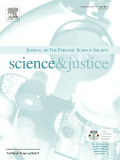
SCIENCE & JUSTICE
Where Scientific Innovation Meets Justice Integrity.Science & Justice is a leading international journal published by Elsevier Science Ltd, dedicated to the interdisciplinary examination of the intersection of justice and science, especially within the realms of forensic science and pathology. Established in 1995, this reputable journal has garnered a commendable Q2 rank in the category of Pathology and Forensic Medicine, reflecting its significant contributions to advancing knowledge in these critical fields. With an ISSN of 1355-0306 and an E-ISSN of 1876-4452, the journal is indexed in Scopus, positioning it in the top 68th percentile among its peers. The objectives of Science & Justice include promoting research that bridges scientific methodologies with justice-related applications, making it an invaluable resource for researchers, professionals, and students alike. As the journal continues to evolve, it aims to interface scientific innovations with forensic practices, thereby enhancing the integrity of justice processes globally. Despite not offering Open Access options, it remains a pivotal reference point within the academic community focused on forensic science methodologies and their legal implications.
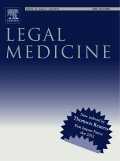
Legal Medicine
Empowering professionals in legal medicine.Legal Medicine, ISSN 1344-6223, published by ELSEVIER IRELAND LTD, stands as a pivotal academic journal within the realms of forensic medicine and legal ethics. Operating from the Netherlands, this journal has established a strong reputation among researchers and practitioners since its inception in 1999, with the goal of advancing knowledge in the intersection of legal and medical disciplines. With a commendable Q2 categorization in both Issues, Ethics and Legal Aspects and Pathology and Forensic Medicine, it ranks among the noteworthy publications in these fields, placing it in the 51st percentile for Pathology and Forensic Medicine and 51st for Nursing-related ethical issues. The journal not only serves as a repository for innovative research and practical case studies but also emphasizes the importance of ethical considerations in medical legal scenarios. Although it does not offer Open Access options, it remains a crucial resource for professionals, researchers, and students seeking to stay informed about the latest developments that shape legal medicine. Access to its contents promises to enhance understanding and inspire advancements in both forensic science and the ethical frameworks surrounding them.

Proceedings of the Institution of Civil Engineers-Forensic Engineering
Illuminating Forensic Pathways in Civil EngineeringProceedings of the Institution of Civil Engineers - Forensic Engineering is a pivotal journal in the field of forensic engineering, published by Emerald Group Publishing Ltd, a renowned name in academic publishing. With a focus on investigating and understanding the failures of civil engineering structures, this journal provides a critical platform for the dissemination of research and case studies aimed at enhancing safety, risk, and reliability in engineering practices. It holds an important place in the Q4 quartile of the Safety, Risk, Reliability and Quality category as of 2023, and currently ranks #123 out of 207 in its field according to Scopus, reflecting its emerging influence despite its relatively recent establishment in 2011. Researchers, practitioners, and students alike will find valuable insights through non-open access articles that contribute to a deeper understanding of forensic analysis in civil engineering contexts. The journal's mission is to promote discussions that lead to significant advancements in civil engineering safety and reliability, ultimately informing best practices and policy-making in the profession.

Egyptian Journal of Forensic Sciences
Bridging disciplines for a deeper understanding of justice.The Egyptian Journal of Forensic Sciences, published by the International Association of Law & Forensic Sciences, stands as a premier platform for scholarly communication in the fields of forensic science, law, and health-related social sciences. With an ISSN of 2090-536X and an E-ISSN of 2090-5939, this open-access journal, established in 2011, has garnered a reputation for its rigorous peer-review process and substantive contributions to the field. Housed in Switzerland, it boasts impressive metrics, achieving a Q2 ranking in Health (social science) and a stellar Q1 in Law, in addition to being recognized in Pathology and Forensic Medicine. With its articles accessible to a global audience, the journal encourages the exchange of innovative ideas and practices among researchers, professionals, and students who are dedicated to advancing the disciplines of forensic science and legal studies. As of 2023, it ranks in the 75th percentile in Social Sciences - Law and continues to influence both academic discourse and practical applications in the forensic domain.
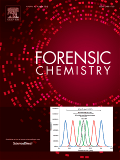
Forensic Chemistry
Pioneering innovative methodologies in forensic chemistry.Forensic Chemistry is a premier journal published by Elsevier, specializing in the interdisciplinary field of forensic science, with a strong emphasis on analytical and materials chemistry, pathology, and law. Established in 2016 and converging to a significant publication trajectory through 2024, the journal has rapidly ascended to an impressive Q1 ranking across multiple categories, demonstrating its impact and commitment to advancing forensic analysis and methodologies. With an impact factor reflecting its relevance—especially notable with a 95th percentile rank in Social Sciences and Law—Forensic Chemistry serves as an essential resource for researchers, legal authorities, and academics seeking to explore the latest developments in forensic techniques and applications. Its rigorous peer-review process and high-quality publications ensure that it remains at the forefront of scientific inquiry in forensic practices. Access to the journal is available without an open access model, further emphasizing its commitment to curated, high-impact scholarship that contributes to both theoretical foundations and practical applications in the forensic field.
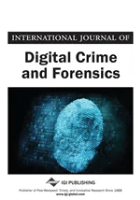
International Journal of Digital Crime and Forensics
Empowering Knowledge in the Battle Against Digital ThreatsWelcome to the International Journal of Digital Crime and Forensics, an esteemed publication spearheaded by IGI Global, dedicated to advancing research and disseminating knowledge in the crucial fields of cybersecurity, digital crime, and forensic analysis. With its inaugural issue published in 2009, this journal has continually focused on providing a platform for innovative research, insightful case studies, and practical solutions aimed at addressing contemporary challenges in digital criminal activity and forensic investigation. While currently classified in the Q4 Category for software within the Computer Science domain according to 2023 rankings, and positioned in the 32nd percentile of Scopus Ranks, the journal remains committed to enhancing its impact and visibility in the scholarly community. By maintaining a rigorous peer-review process, the journal ensures high-quality contributions that equip researchers, professionals, and students with essential tools and knowledge. Although the journal operates under a subscription model, it plays an integral role in shaping the discourse surrounding digital crime and forensics, making it an indispensable resource for anyone serious about understanding and combating digital threats.

Conservation Genetics Resources
Innovating Conservation Strategies with Genetic KnowledgeConservation Genetics Resources, published by SPRINGER in Germany, is a key resource in the field of conservation science, focusing on the genetic aspects essential for biodiversity preservation and ecosystem management. With an ISSN of 1877-7252 and an E-ISSN of 1877-7260, this journal has established its presence as a vital platform for disseminating high-quality research that addresses the challenges of genetic conservation strategies. Notably, it has demonstrated a strong academic impact, currently holding a Q3 ranking in Ecology, Evolution, Behavior and Systematics and Q4 in Genetics for 2023, alongside Scopus ranks that position it as a notable contributor in its fields. This journal invites contributions that enhance the understanding of genetic diversity, population genetics, and conservation genomics, and it serves as an essential reference for researchers, professionals, and students committed to the preservation of our natural heritage. The access options are varied, catering to the needs of its diverse readership, and making it an indispensable addition to academic research spaces.

Forensic Toxicology
Elevating Standards in Toxicological AnalysisForensic Toxicology is a premier journal published by Springer, renowned for delivering cutting-edge research in the realms of toxicology, biochemistry, and forensic medicine. With an ISSN of 1860-8965 and an E-ISSN of 1860-8973, this journal has established itself as a significant resource for professionals, researchers, and students engaged in the analysis of toxic substances within a forensic context. Its impressive impact factor and ranking reveal its influential presence in the field, particularly as it is categorized in Q1 for Pathology and Forensic Medicine and Q2 for Biochemistry (Medical) and Toxicology. Featured articles span a wide array of topics, facilitating interdisciplinary collaboration and advancing scientific knowledge. While currently not an open-access journal, it remains accessible through institutional subscriptions. With a convergence span from 2006 to 2024, Forensic Toxicology is committed to publishing high-quality research that enhances the understanding of toxicological phenomena and their implications in forensic investigations, reinforcing its role as an indispensable resource in the scientific community.
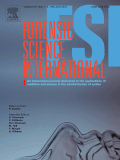
Forensic Science International
Leading the Way in Open Access Forensic ResearchForensic Science International is a premier journal published by Elsevier Ireland Ltd, dedicated to advancing the field of forensic science through interdisciplinary research and scholarship. Since its inception in 1978, this esteemed journal has provided a platform for vital research, receiving recognition in the Q1 category for both Law and Pathology and Forensic Medicine as of 2023, underscoring its significant impact in these domains. It currently ranks 54th out of 1025 journals in Social Sciences - Law and 51st out of 208 in Medicine - Pathology and Forensic Medicine, placing it in the top echelons of academic journals according to Scopus metrics. Forensic Science International transitioned to Open Access in 2019, ensuring that critical findings are widely available to the global research community and enhancing collaboration among forensic professionals. With a forward-looking scope that evolves to meet the challenges and innovations of forensic science, this journal remains a pivotal resource for researchers, practitioners, and students who are committed to the continued advancement of forensic science and its applications in legal contexts.